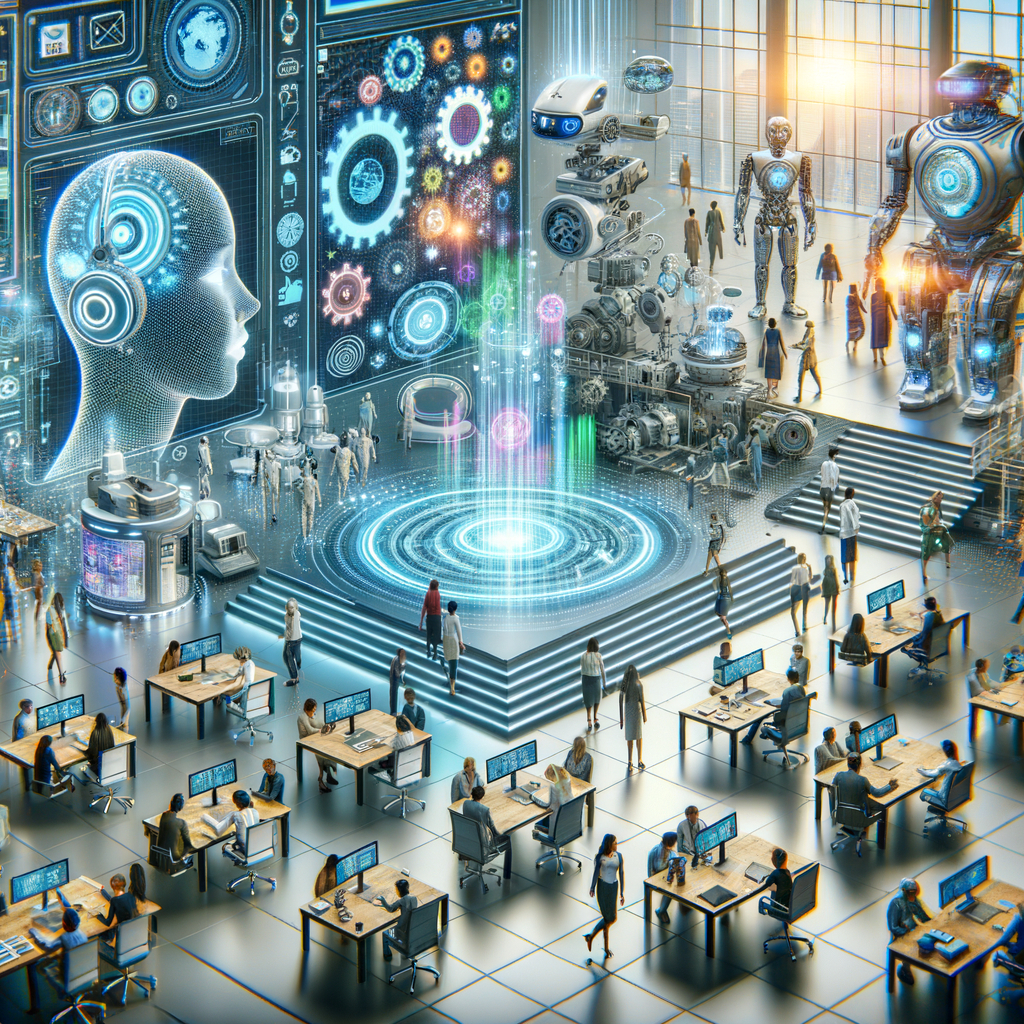Physical Address
304 North Cardinal St.
Dorchester Center, MA 02124
Physical Address
304 North Cardinal St.
Dorchester Center, MA 02124

As we navigate the rapidly evolving landscape of work, it is crucial to understand the emerging trends that are shaping our future. The world of work is being transformed by technological advancements, demographic shifts, environmental changes, and social dynamics. In this article, we explore some key trends and predictions about the future of work.
Undoubtedly, technology is one of the most influential factors shaping the future of work. Artificial Intelligence (AI), machine learning, robotics, and automation are revolutionising how we work.
Artificial Intelligence: AI is increasingly being used to automate routine tasks, allowing human workers to focus on more complex and creative aspects of their jobs. As AI becomes more advanced, it’s expected that a greater number of tasks will be automated across various industries.
Machine Learning: Machine learning algorithms are becoming increasingly proficient at predicting outcomes based on data patterns. This capability can be utilised in numerous sectors such as finance for risk assessment or healthcare for predicting patient outcomes.
Robotics & Automation: Robots are already being used in manufacturing processes but they’re also making their way into service industries like retail and hospitality. Automation is not only replacing manual labour but also administrative tasks which could lead to significant job displacement.
The rise of freelance work or ‘gigs’ has been a significant trend in recent years. Enabled by digital platforms like Uber or Upwork, individuals can now provide services directly to consumers or businesses on a project-by-project basis. The gig economy provides flexibility for workers but also raises questions about job security and benefits traditionally provided through full-time employment.
The COVID-19 pandemic has accelerated the trend of remote work, forcing businesses to adapt to a distributed workforce. Many organisations have found that remote work can be just as productive, if not more so, than traditional office-based work. As technology continues to improve and businesses become more comfortable with this model, it’s likely that remote work will become a permanent feature in many industries.
Sustainability is becoming an increasingly important factor in the world of work. Businesses are recognising the need to reduce their environmental impact and are implementing sustainable practices into their operations. This shift towards sustainability is not only driven by regulatory pressures but also by consumer demand for environmentally responsible products and services.
Changing demographics are also influencing the future of work. The ageing population is resulting in a higher proportion of older workers, requiring adjustments in workplace policies and practices. Additionally, younger generations entering the workforce have different expectations about work-life balance, career progression and corporate responsibility which are reshaping organisational cultures.
Increased Automation: With advancements in AI and machine learning, we can expect increased automation across various sectors. While this may lead to job displacement in certain areas, it will also create new opportunities for roles focused on managing and interpreting data generated by these technologies.
Growth of Remote Work: The trend towards remote work is likely to continue post-pandemic. Organisations will need to invest in technology infrastructure to support distributed teams and develop strategies for maintaining employee engagement and productivity remotely.
Sustainable Practices: As consumers demand more sustainable products and services, businesses will need to integrate sustainability into their core operations. This could lead to job growth in areas related to environmental management and sustainability consulting.
Adapting to Demographic Changes: As the workforce becomes more diverse, organisations will need to adapt their policies and practices to cater for a range of needs and expectations. This may involve offering flexible working arrangements, implementing diversity and inclusion initiatives, or providing ongoing learning and development opportunities.
The future of work is complex and uncertain, shaped by numerous factors that are continually evolving. By understanding these trends, we can better prepare for the challenges and opportunities that lie ahead.